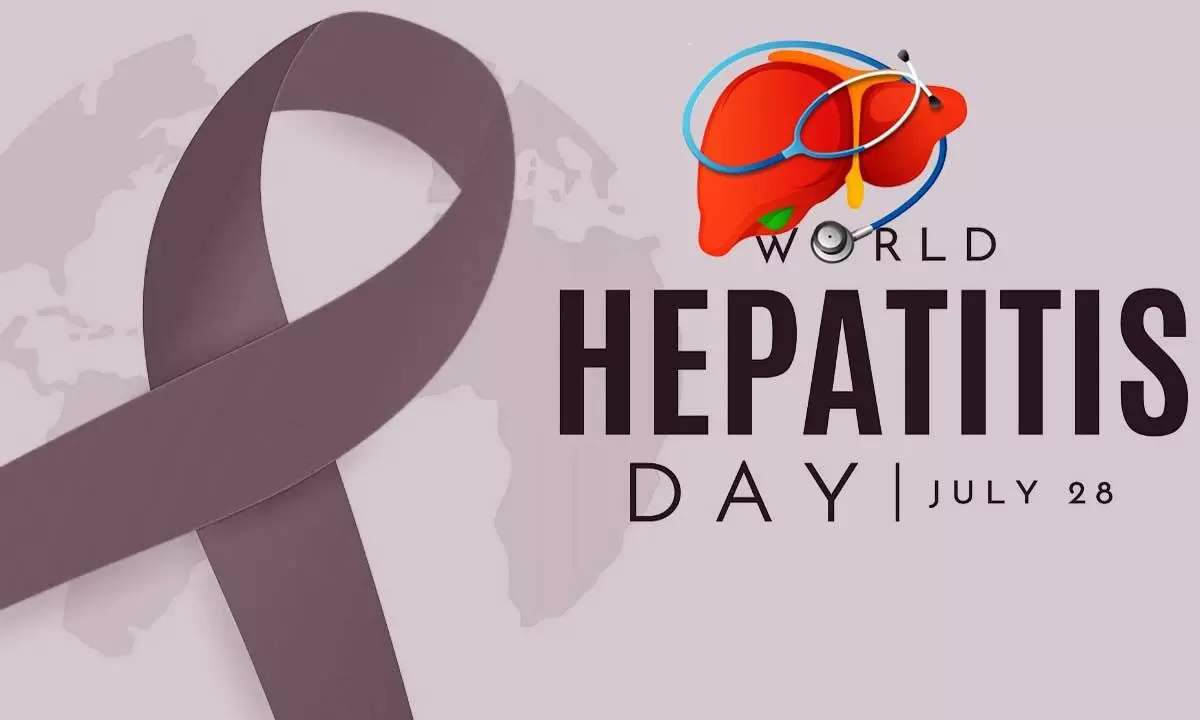World Hepatitis Day: All you need to know about Symptoms, Treatment and Fighting against Hepatitis in India

Hepatitis, a viral infection that affects the liver, is a significant global health concern. With World Hepatitis Day observed annually on July 28th, it becomes imperative to raise awareness about this silent epidemic.
Hepatitis, a viral infection that affects the liver, is a significant global health concern. With World Hepatitis Day observed annually on July 28th, it becomes imperative to raise awareness about this silent epidemic. We spoke to By DrVishal Sehgal, President, PorteaMedical he says, “In India, hepatitis continues to be a major public health problem due to various factors, including social conditions and transmission routes. India continues to face a significant burden of hepatitis, according to reports, about 40 million Indians are carriers of Hepatitis B and 6-12 million of Hepatitis C. About 4000 people die globally from viral hepatitis due to negligence or lack of early detection. The most prevalent types are Hepatitis B and C, which can lead to chronic liver disease, cirrhosis, and even liver cancer if left untreated. However, Hepatitis A should not be ignored, despite being a milder form, as it can still cause considerable discomfort and distress.”
Dr Vishal Sehgal says, “Environmental and social conditions in India exacerbate the situation. Poor sanitation, lack of access to clean drinking water, and improper waste disposal contribute to the spread of Hepatitis A and E through contaminated food and water. On the other hand, Hepatitis B and C can be transmitted through unprotected sexual contact and sharing of needles, making vulnerable populations, such as sex workers and intravenous drug users, at higher risk.” Dr Vishal talks about the symptoms and importance of vaccination and safety etc.
Detecting common symptoms and understanding transmission routes
One of the challenges in combating hepatitis is that many people may not experience any noticeable symptoms, especially during the early stages of infection. When symptoms do occur, they can vary depending on the type of hepatitis. Common symptoms include fatigue, jaundice (yellowing of the skin and eyes), abdominal pain, nausea, and flu-like symptoms. Understanding how hepatitis spreads is crucial in preventing its transmission. Hepatitis A and E are primarily transmitted through contaminated food and water. It is essential to prioritize access to clean water and proper sanitation to reduce the incidence of these types of hepatitis.
Hepatitis B and C, which are more likely to become chronic infections, can be transmitted through unprotected sexual contact and sharing of needles, syringes, or other drug paraphernalia. Pregnant women with Hepatitis B can also transmit the infection to their newborns during childbirth. Ensuring safe sex practices, avoiding sharing personal items, and providing proper medical care during pregnancy can help prevent these routes of transmission.
Importance of vaccination and safety
Vaccination plays a crucial role in preventing hepatitis. Vaccination remains the key to preventing illnesses due to hepatitis A and B. It is essential for individuals to check their immunization status and ensure that their family members, especially children and teenagers, are up-to-date with their vaccinations. Three doses of Hepatitis B vaccine with the second and third doses given one and six months after the first dose provide 90 per cent protection for over 20 years. Two doses of vaccine given six months apart help prevent the infection due to hepatitis A. This vaccine is given to children up to 18 years of age. Adults, who have not been vaccinated, also can be given the vaccine. Vaccination not only protects individuals but also contributes to community immunity, reducing the overall prevalence of the disease.
Ensuring hygiene
Promoting good hygiene practices is vital to preventing the spread of hepatitis. Encourage everyone to wash their hands thoroughly with soap and water, particularly after using the restroom and before eating or handling food. This simple practice can significantly reduce the risk of infection.
Safer sex
Practicing safe sex is crucial in preventing the transmission of Hepatitis B and other sexually transmitted infections. It is imperative to raise awareness about and encourage the use of condoms.
Avoid sharing personal items
Sharing personal items like razors, toothbrushes, and needles can facilitate the transmission of hepatitis viruses. It is essential to educate individuals about these risks and discourage the sharing of such items.
Get regular health checkups
Regular health checkups are crucial, especially for those at higher risk, such as healthcare workers or individuals with multiple sexual partners. Screening for hepatitis can help detect infections early and allow for timely intervention and treatment.
Preventing mother-to-child transmission
Pregnant women must consult healthcare providers and undergo testing for hepatitis to reduce the risk of transmission to their newborns. Following appropriate medical advice can help minimize the chances of mother-to-child transmission.
Campaign initiatives and the role of home healthcare
Various campaigns and initiatives are conducted on World Hepatitis Day to raise awareness and promote prevention. In 2018, India launched the National Viral Hepatitis Control Program (NVHCP) to address the public health concern of Viral Hepatitis in the country aiming to integrate existing initiatives for awareness, prevention, and treatment of viral hepatitis, with a specific goal of eliminating hepatitis C nationwide by 2030. Additionally, it aims to reduce the burden of hepatitis infections and decrease the risk, morbidity, and mortality associated with Hepatitis A and E. Governments, healthcare organisations, and NGOs work together to educate communities and provide access to testing and treatment. Home healthcare services also play a critical role in treating hepatitis. They provide convenient and personalised care for individuals with chronic hepatitis at the patient's doorstep, ensuring adherence to treatment plans and regular monitoring of liver function.
In conclusion
As we observe World Hepatitis Day, let us remember the importance of understanding hepatitis symptoms and taking preventive measures to protect our families and communities. By emphasizing vaccination, safe hygiene practices, safer sex, and avoiding the sharing of personal items, we can reduce the risk of hepatitis transmission. Regular health checkups and timely screenings can lead to early detection and better management of the infection. To safeguard against Transfusion-transmitted infections (TTIs), our government should adopt NAT PCR testing at all blood banks. With increased awareness and responsible actions, it is possible to work together towards reducing the burden of viral hepatitis worldwide.













